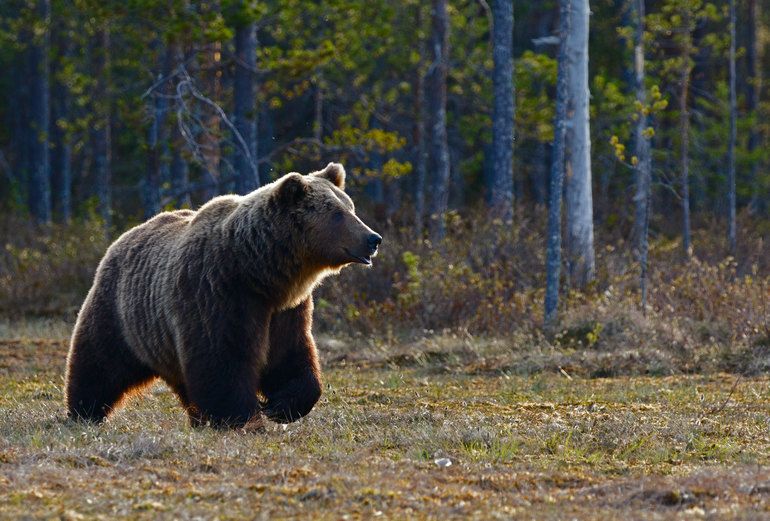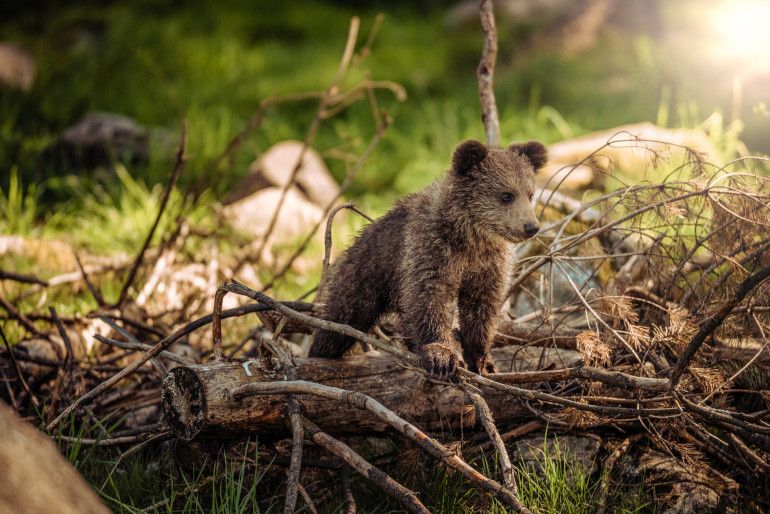Find out what bears and corn have to do with Saint Andrew’s day in Bulgaria
Written by Andrea Vushkova, edited by Scott Green, photos by Unsplash
If you have been living in Bulgaria for some time, you probably know that name days are a big deal around here. They are directly connected to the Orthodox Christian calendar and the saints whose names (or variations of names) are widely used when naming children. Oftentimes, especially in the past, it is considered that kids “come with their name”, so they are called after the saint whose holiday is closest to their birthdate. Of course, it is not necessary for someone to be religious in order to celebrate their name day, this tradition has gradually lost its initial meaning and is nowadays just another reason for a fun gathering.
So it should not come as a surprise that Andreevden (Andrey’s Day), the name day of Andrey, Andrea, Adrian, and A(n)driana, honors the memory of Saint Andrey (Andrew) the First-Called. The saint was crucified on 30 November and this date has become his official day in the Christian calendar.
His nickname “the First-Called” has quite a literal meaning: he was indeed the very first disciple of Jesus. Andrew and his brother Peter (yes, the infamous Saint Peter, the founder of the Church) were fishermen in Galilee and were asked by Christ to become “fishers of men”, or in other words, recruiters for Christianity.
Andrew the Apostle was sent preaching on the shores of the Black Sea, on the territory of modern-day Bulgaria and Romania. It is quite surprising that this is part of the reason he became the patron saint of Scotland. Scots believed to be the descendants of the Scythians, tribes that lived in these Balkan lands and were maybe converted to Christianity by Saint Andrew. 30 November is also considered and celebrated as the saint’s holiday in Scotland.
But, let’s focus on Saint Andrew, or rather Sveti Andrey, in Bulgaria. His day is also called Andreyuvden, Andreya, Edrei, Endrin, Edrevden, or Dreyovden in different parts of Bulgaria. Another version is Mechkinden (Bear Day) and there is a particular legend in Bulgarian folklore that explains this alternate name.
Saint Andrey was a hermit who lived in the mountains. He had a field and an ox and that was all he needed in order to survive. However, one day a bear came close to the saint’s home and ate the ox that pulled the plow in the field. Andrey got angry because he had no other means of plowing the hard ground, so he harnessed the bear to the plow and thus became the master of all bears.

In another tale, the bear was stealing honey from a monastery, not far from the cave where Saint Andrey was living in seclusion. One day he managed to catch the bear and threw himself on its back. He went to the monastery, riding the bear, and was officially proclaimed its master.
Aside from its Christian roots, the holiday was obviously also influenced by some pagan beliefs, particularly the idea that 30 November marks the transition from autumn to winter. People say that from this date on the day starts “growing” with one millet grain or corn kernel at a time, meaning that there is more and more daylight. That is why one of the alternate names for Andreevden is “Edrei”, which means growing, becoming bigger. We now know that this is not scientifically accurate but it is still nice to have this “warming” thought at the start of the winter.
People also used to listen to the water in the wells and in the frozen rivers on 30 November. If the water was quiet under the ice, that was a prediction for a mild winter. If, on the contrary, it was boisterous and loud, that meant severe cold and snowstorms. Snow on Andreevden was also a harbinger of a freezing winter. However, a cold but sunny day was interpreted as a good omen for rich crops.
As autumn is the time for sowing, on the eve of St. Andrew's Day, women boiled corn, beans, barley, or lentils, and repeated the mantra "As the boiled grains swell, so may the crops be abundant." The whole household then threw a few grains up into the chimney, "so that the crops grow tall." In modern times, it is enough to eat some corn or beans in order to follow the tradition at least to some extent.

Back to the bear, many European and Asian nations, including the Bulgarian one, consider this animal a symbol of the feminine, of fertility, and birth in their mythologies. Therefore, on St. Andrew's Day, tradition forbids young brides to take up any work in order to “get bigger” sooner, that is, to get pregnant and give birth to a healthy child.
Lastly, on the night of 29 November, unmarried girls were trying to guess whether their chosen wooers would propose to them and were praying for happiness and a good marriage. Legends also say that the night before Andreevden is mystical and if you were to make a true, honest wish, it will come true.
As you can see, Christian and pagan beliefs are once again intertwined in the Bulgarian version of Saint Andrew’s day. I have to admit that a lot of the traditions and legends were unknown and quite intriguing even for me, a Bulgarian, who happens to be named Andrea. I hope that you will also find these stories interesting and eat some corn, beans, or lentils today.
And don’t forget, winter might be here already, but each day will be longer than the previous one and soon enough, the summer sun will shine again!
